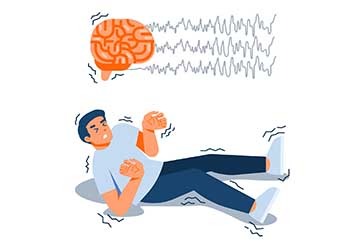 Book Appt.
Book Appt.
 Call Now
Call Now


Agnosia is a fascinating and often misunderstood neurological condition characterized by a deficit in recognizing or interpreting sensory information, despite intact primary sensory modalities. It is a complex disorder that can affect various aspects of perception, including visual, auditory, tactile, and even olfactory senses. Understanding agnosia is essential for diagnosing and supporting individuals who experience this perplexing condition.
Types of Agnosia
Causes and Mechanisms
Agnosia is most commonly associated with brain damage, often resulting from strokes, head injuries, tumors, or neurodegenerative diseases like Alzheimer's or other forms of dementia. The specific area of the brain affected by the damage determines the type and severity of agnosia experienced. For instance, visual agnosia is often linked to damage in the occipital and parietal lobes, while auditory agnosia may result from lesions in the temporal lobe.
Diagnosis and Assessment
Diagnosing agnosia involves a comprehensive evaluation by a neurologist or neuropsychologist. This assessment may include:
Impact on Daily Life
Living with agnosia can be challenging and frustrating. Simple tasks that most people take for granted, like recognizing familiar objects, faces, or even understanding spoken language, can become arduous. Depending on the type and severity of agnosia, individuals may require support with daily activities, such as cooking, dressing, or navigating their environment.
Coping Strategies and Rehabilitation
While there is no cure for agnosia, there are strategies that can help individuals adapt and improve their quality of life:
Conclusion
Agnosia is a complex neurological condition that profoundly impacts an individual's perception and recognition abilities. While there is no cure, understanding the types, causes, and coping strategies associated with agnosia is crucial for providing support and improving the quality of life for those affected. With appropriate care and adaptation, individuals with agnosia can lead fulfilling lives and navigate the world with greater ease and confidence.
SHALBY Sanar International Hospitals provides extensive medical procedures backed up with our state-of-the-art technology and a team of highly qualified & experienced clinical experts.

Patient from Iraq gets treated by Dr. Harnarayan Singh | SHALBY Sanar International Hospitals

15 year old Patient from Liberia gets treated by Dr Harnarayan Singh | Neurosurgery & Spine Surgery

Mrs. Khalida Khaleel from Iraq Overcomes Degenerative Disc & Grade 1 Spondylolisthesis

Successful Treatment of a Patient from Uzbekistan for Degenerative Disc Disease and Back Syndrome

Surviving Stroke: Bipasha Banerjee's Testimony on Timely Intervention

Successful Intraoperation Neuro Monitoring on patient Hasan from Iraq

Successful removal of Glioma using advanced machines

A multidisciplinary care worked wonders for Ms. Akhtamova from Tajikistan

Treatment for Brain Aneurysm - Al Qumairi Saeed Mohsen Awadh from Yemen
Our doctors pen down their research findings and experiences from time to time. Their words provide deep insight into the latest techniques, technologies and other advancements in healthcare. It provides expert answers to all kinds of health questions for real-life issues.
VIEW ALL




Since the day of its foundation, SHALBY Sanar International Hospitals is committed to provide comprehensive healthcare services. It regularly organizes awareness programs in its premises and encourages outdoor healthcare activities and camps with an intent to put focus on preventive healthcare.
VIEW ALL